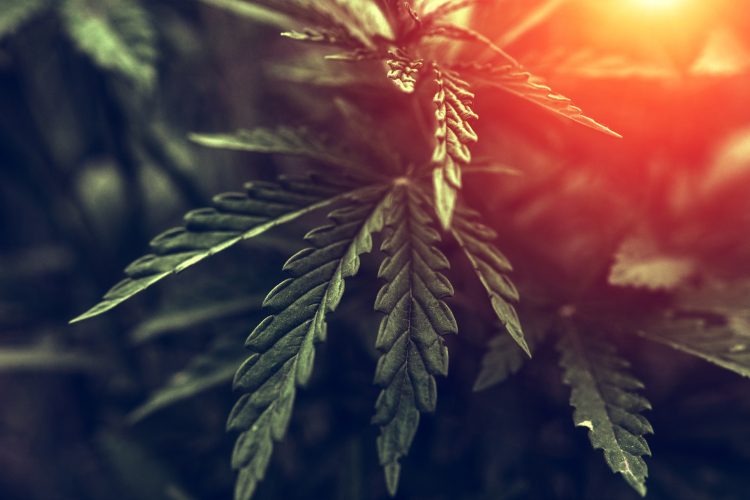CBD explained…
- Like
- Digg
- Del
- Tumblr
- VKontakte
- Buffer
- Love This
- Odnoklassniki
- Meneame
- Blogger
- Amazon
- Yahoo Mail
- Gmail
- AOL
- Newsvine
- HackerNews
- Evernote
- MySpace
- Mail.ru
- Viadeo
- Line
- Comments
- Yummly
- SMS
- Viber
- Telegram
- Subscribe
- Skype
- Facebook Messenger
- Kakao
- LiveJournal
- Yammer
- Edgar
- Fintel
- Mix
- Instapaper
- Copy Link
Posted: 10 January 2020 | Bethan Grylls (New Food) | No comments yet
CBD, hemp and THC are becoming familiar words to the industry, yet confusion around their differences and side effects still looms. Here, Bethan Grylls speaks to expert Ryan Crane about the variances, US regulation, and his vision to remove the cannabis stigma.


What is the difference between CBD and THC?
Cannabis is a genus of flowers comprised of three species: cannabis sativa L., cannabis indica and cannabis ruderalis containing more than 500 compounds. These include cannabinoids, terpenoids, flavonoids and omega fatty acids. There are more than 100 unique cannabinoids that have been identified, the most well known being CBD and tetrahydrocannabinol (THC).3
There are two broad classifications of cannabis: hemp and marijuana, explained Ryan Crane, Founder and CEO of Tempo, a brand that specialises in “functional” CBD beverages. The difference is based on levels of THC, which is the psychoactive substance of cannabis that reacts with our endocannabinoid system (ECS) – a cell-signalling system in the human body – and causes an individual to become ‘high’.
CBD can be extracted from both hemp and marijuana. For regulatory purposes, Crane said, the cannabis plant has been divided into these two subtypes based on their amount of THC, with CBD-derived hemp comprising less than 0.3 percent. CBD products with levels that exceed this amount are illegal in the US.
Crane admitted that regulation surrounding CBD, cannabis and hemp is complicated, however. “We are restricted (in) where we can operate because the regulations and legislation differs across each state. It is very difficult…but I think it is our obligation as a brand to understand what those regulations mean and not keep battling the regulators.”
CBD claims
Although there is much discussion about potential medicinal benefits, health claims on CBD products are not allowed. “There are thousands of claims floating around,” Crane admitted, “and a lot of good data surrounding the potential health benefits of CBD. Yet, industry should not be making those claims on its products until more robust data is gathered on these perceived benefits.”


Cannabis is evolving into something different, with some consumers considering it as “therapeutic”
According to Acting FDA Commissioner Ned Sharpless, MD: “Selling unapproved products with unsubstantiated therapeutic claims – such as claims that CBD products can treat serious diseases and conditions – can put patients and consumers at risk by leading them to put off important medical care. Additionally, there are many unanswered questions about the science, safety, effectiveness and quality of unapproved products containing CBD.”4
Crane told New Food that it is difficult for consumers to “sort through the noise”, so it is important for industry players to remain transparent and honest about its CBD products.
Crane also emphasised the importance of manufacturers vetting third parties to ensure the integrity of the products being supplied. In the US, an investigation of 128 samples by the Associated Press found that a large number of vapes (128) and gummy bears (36) claiming to contain CBD had been substituted with synthetic marijuana.5
“We vet our suppliers heavily,” Crane confirmed, “we are careful about who we partner with and try to incorporate the right checks into our process where regulatory structure does not yet exist.”
Crane stressed the importance of knowing the precise process being carried out by a third-party lab, due to the complexity and diversity of extraction methods. “It can vary from isolate (eg, only CDB) to full spectrum (all cannabinoids) and broad spectrum (all cannabinoids except THC).”
He continued: “Asking the right questions is vital. You have to understand their process. What’s the consistency and reliability of the product? It takes an added layer of scrutiny because in some areas of this field standardisation is lacking.”
He added that Tempo also examines any certificate of analysis or study carried out by its partners, which provides evidence of the percentage of each cannabinoid in the extract. “We also run our own tests to make sure that the product contains what it was intended to contain.”
Stigma and cannabis
Despite the intricacies surrounding CBD infusion in food and drink, Crane believes the biggest challenge is addressing the stigma that still surrounds it.
“CBD hemp is probably the biggest trend we have seen in a very long time,” Crane said, “but cannabis is clouded by this intense stigma built up over the last 80 years. A lot of people grew up afraid of cannabis – considered it a scary gateway drug – and that mindset is so ingrained in our culture.
“Before cannabis was made illegal in 1937, we had hemp paper, cannabis sativa, in apothecary shops. The illegalisation, in my opinion, was due to successful lobbying from competitive groups – the tobacco, cotton and alcohol industries.”
He explained that his vision is to change the narratives about cannabis: to “normalise” it towards a therapeutic angle, and he believes we are starting to see this shift. “In the past, people may have been introduced to cannabis through smoking for pure recreational purposes; now cannabis is evolving into something different, something considered therapeutic. We are seeing a new type of consumer, a person who cares deeply about their personal wellness and fitness.”
Crane believes this ‘new era’ of consumer is due to the “more approachable” connotations that food and drink offer, enabling curious, but perhaps more hesitant customers to “access the potential benefits of the cannabis plant”.
In terms of the future, Crane foresees this evolution of cannabis stretching further. “I believe in the synergistic benefits of different compounds that can be extracted and how these could work together in new ways to cater to specific and personalised usage,” such as cannabidiols that help sleep patterns or increase focus.
He regards the current market as “the tip of the iceberg”, suggesting that we are yet to “scratch the surface of what the plant can do”. He added: “The cannabis of yesterday is not the cannabis of tomorrow; we are still in the early stages of this market. There is more to come.”
Biography


Ryan Crane
Ryan Crane is an entrepreneur and advocate for cannabis, with particular expertise in CPG start-ups and institutional finance. He is the Founder and CEO of Tempo, a modern brand that aims to elevate consumers to achieve more during the day through its line of better-for-you, functional beverages. Ryan has spoken widely on cannabis, CBD, and trends in food and beverage at events and conferences throughout the US. He received his MBA from the University of Chicago Booth School of Business (honors), and BA in Psychology/Neuroscience from Princeton University (magna cum laude). Ryan is also a CFA charter holder.
References
- https://www.ncbi.nlm.nih.gov/pmc/articles/PMC6710502/#bcp14038-bib-0001
- https://bdsanalytics.com/u-s-cbd-market-anticipated-to-reach-20-billion-in-sales-by-2024/
- https://irp-cdn.multiscreensite.com/51b75a3b/files/uploaded/Report%20%7C%20CBD%20in%20the%20UK%20-%20Exec%20Summary.pdf
- https://www.apnews.com/f317c5c9682e4c5cb125d56f9fe6b737
- https://www.fda.gov/news-events/press-announcements/fda-warns-company-marketing-unapproved-cannabidiol-products-unsubstantiated-claims-treat-cancer
Issue
Related topics
Beverages, CBD hemp & cannabis, Ingredients, Plant based, The consumer







